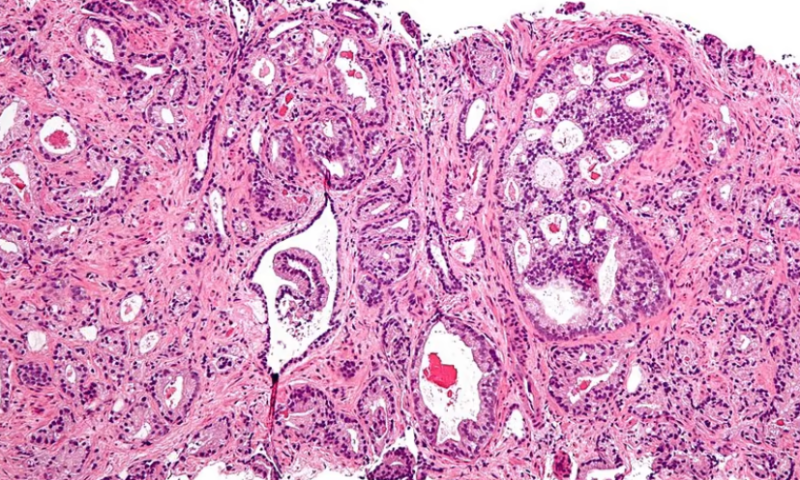Last year, Paige became the first tech developer to score an FDA approval for an artificial intelligence program that could detect signs of prostate cancer in digital pathology slides. Just a few months later, it’s pushing the technology to new frontiers, enabling it to look for even more indicators of the disease in biopsy samples.
In contrast to the initial software, Paige Prostate Detect, which pores over a slide to identify microscopic cancer cells, the New York-based company’s new offering, Paige Prostate Biomarker Suite, instead looks for molecular signals linked to prostate cancer.
And while the biomarker suite hasn’t yet earned the same FDA authorization granted to its predecessor, Paige announced Thursday that it did secure both a CE mark and UKCA certification, allowing it to be used in the EU and U.K., respectively.
The new biomarker-spotting tool relies on the same underlying AI technology as the cell-spotting version. It analyzes a biopsy sample for androgen receptor, TP53, RB1 and PTEN biomarkers, all of which have been linked to the development and spread of prostate cancer. If any of those indicators are found, a pathologist may proceed to call for confirmatory diagnostics like immunohistochemistry or fluorescence in situ hybridization, commonly known as FISH.
With the new tool, Paige is aiming to make biomarker detection more accessible and more widely used in cancer diagnostics. It’s meant to be used to examine digital images stained with hematoxylin and eosin, the most commonly used stain in tissue analysis. It also takes a much more straightforward, image-based approach to biomarker testing, which typically requires an expensive molecular diagnostics platform and blood sample to perform.
Buoyed by the European approvals, Paige said it now plans to identify and evaluate other biomarkers linked to cancer and train the AI to recognize them, too.
“By employing Paige Prostate Biomarker Suite, clinicians can rapidly reduce laboratory turnaround time while providing a broader range of data at the point of diagnosis,” said Jill Stefanelli, Ph.D., Paige’s president and chief business officer.
“As we expand our biomarker portfolio, we also look forward to developing novel biomarkers across indications to identify patients that should receive genomic testing or could potentially respond to targeted therapies,” Stefanelli said. “This opens the door to a whole new range of biomarker applications and, in turn, new opportunities for industry collaboration.”
Prostate cancer is just one half of the current focus of Paige’s diagnostic AI. Earlier this year, for example, in between securing regulatory approvals for the cell- and biomarker-detecting tools, the company also began rolling out yet another program in its breast cancer portfolio. Still designated for research use only, the new offering can help pathologists determine whether breast cancer has spread to the lymph nodes.

